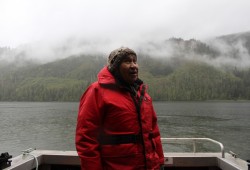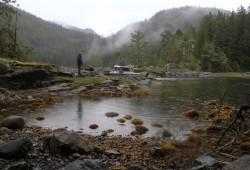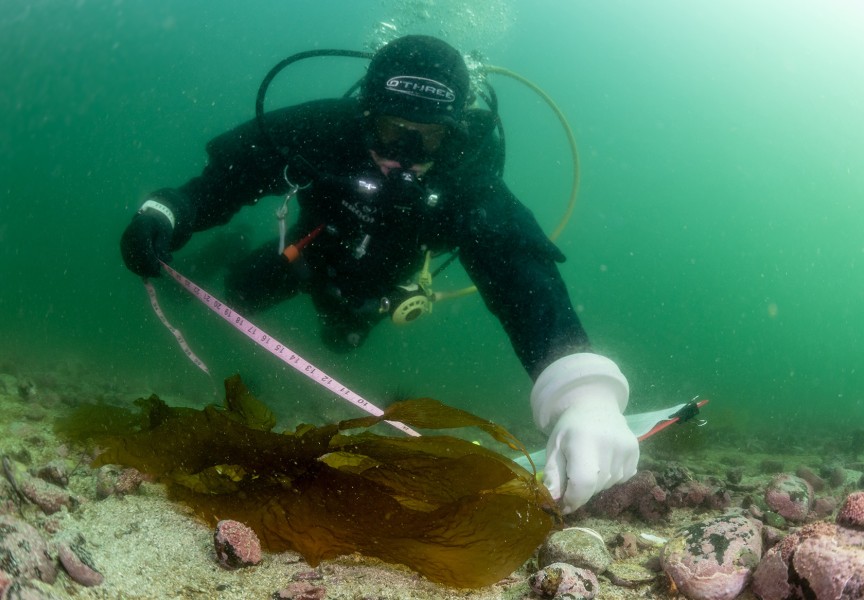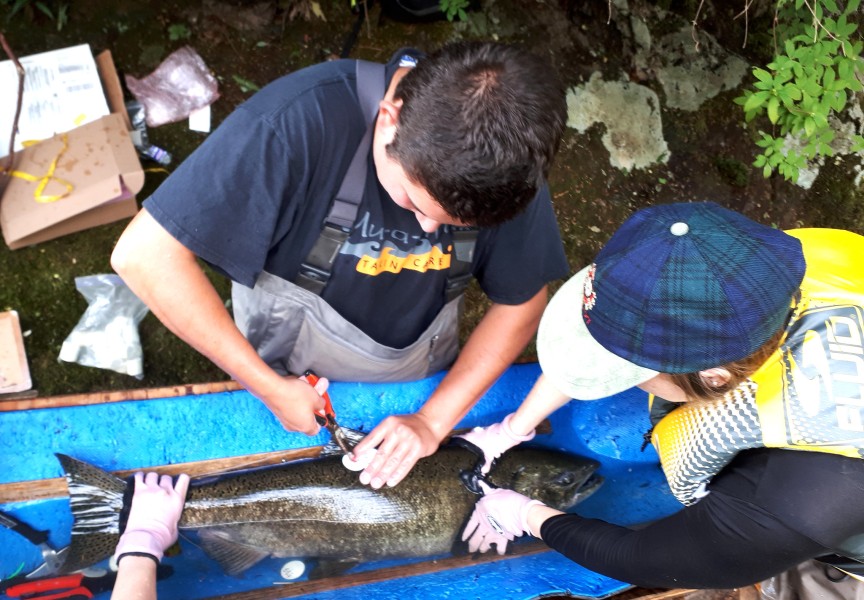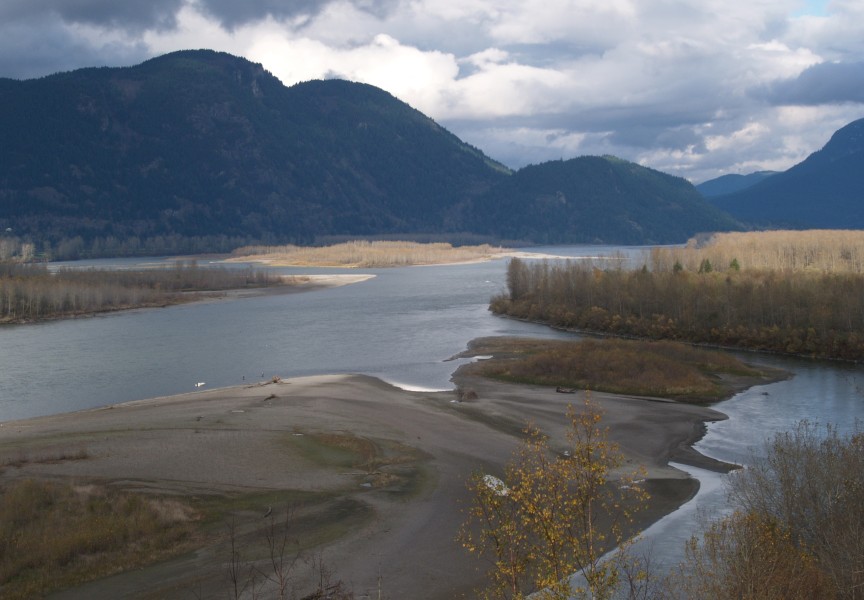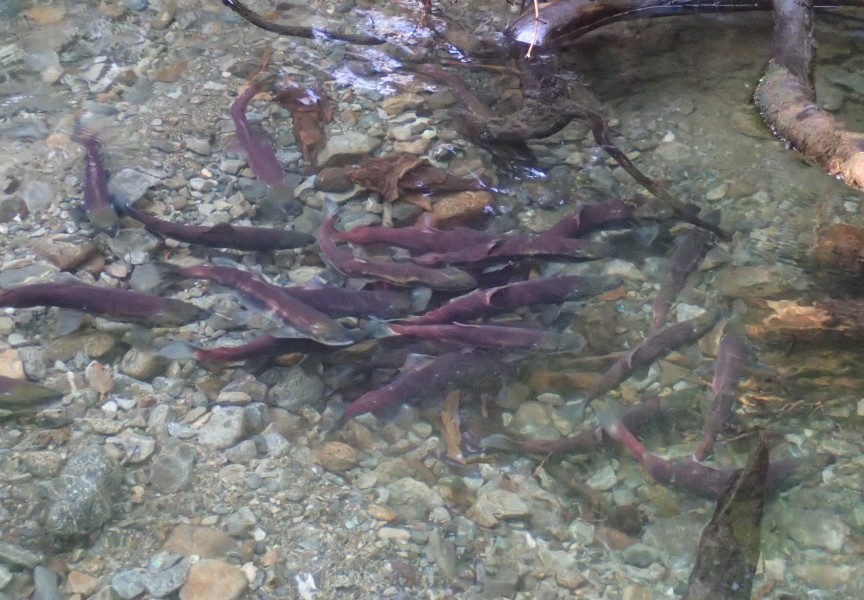“The rules are not enforced uniformly, our people are over-policed, and the federal government is pouring plenty of resources into enforcement of their policies,” said Dr. Andrea Reid.
Reid is a co-founder of the Fish Outlaws project. Funded by the National Geographic Society, the project explores the history of criminalization of Indigenous fishers in the Salish Sea Bioregion and how destructive colonial fisheries management and environmental practices have compromised First Nation’s fishing rights and community well-being
A member of Nisga’a Nation, Reid is a principal investigator at University of British Columbia’s Centre for Indigenous Fisheries (CIF). She is an Indigenous fisheries scientist and conservation biologist. She co-founded the Fish Outlaws project with Rena Priest, a member of the Lhaq'temish (Lummi) Nation, a writer and Washington State poet laureate, as well as Dr. Lauren Eckert, conservation scientist and Amy Romer, visual journalist.
“For the past 200 years, colonizers of the Pacific Northwest have usurped access to the fisheries on which Indigenous Peoples have lived independently since time immemorial,” reads the newly launched Fish Outlaws website. “Oppressive practices have included the confiscation of canoes, boats, nets, and other fishing gear; enforced exclusion from certain waters; incarceration of tribal and First Nations fishers; and threats of violence that have been acted upon by authorities when fishers have stood up for their inherent rights.”
The founding members have launched the Fish Outlaws website which details fisheries management history in Canada and the U.S., and it explores a more just and sustainable future for Indigenous fishers. It shares the stories of Indigenous elders, including the late Ray Williams, a Mowachaht member who lived in Yuquot for almost his entire life.
One of the stories centers around Williams’ grandson Sammy’s experience as a rights-based fisherman. One of the tabs on FishOutlaws.net, which launched April 22, is called Red Flag, and it tells the story of Williams’ cross-generational experiences of intimidation, harassment and criminalization as Mowachaht/Muchalaht rights-based fishers.
According to the story, rights-based fishers are required to fly a red flag.
“It’s a red flag — a target,” said Sammy in the article. “When me and my brother were fishing, there was probably one hundred sports boats out. DFO motored past every sports boat and came straight for us.”
There are other stories on the website featuring both Sammy and his late grandfather, Ray Williams.
“There are real and vital challenges when it comes to Indigenous rights-based fisheries,” said Reid.
It’s important to understand community rights and to design a system that works, she added.
“Indigenous rights to fisheries were taken away and are being returned piece meal. It affects our people,” said Reid.
Their work started in the Salish Sea region but has grown to include interior B.C., up and down the Pacific Coast, Sami territory and well beyond.
“Our focus is fisheries justice and what that looks like, to fish in the right ways,” said Reid, noting that rights are coupled with responsibilities.
From the colonial perspective, Reid imagines everything here looked wild and unmanaged.
“But there were systems in place to harvest marine life and maintain a healthy, balanced ecosystem,” she said.
She points to the Lake Babine area in 1904 when federal fisheries officers were ordered to remove the weirs that the people relied on for food fish. The weirs were viewed as barricades and believed to be harmful to the fish stocks. Reid said the federal fisheries’ decision to remove the weirs came after the local canneries expressed interest having increased access to fish.
Fisheries officers compensated the Babine people with rotten fish nets, according to Reid.
“They nearly starved that winter,” she said.
In 1905 the Babine people rebuilt the weirs.
“They’re a selective fishing device, but DFO didn’t understand them,” said Reid.
Fisheries officers returned in 1906 to destroy the new weirs but the Babine people were prepared.
“The matriarchs physically pulled the officers off of the weirs and sat on them in the river,” said Reid.
“This Earth Day, we’re hoping to show how we take care of earth and how we relate to this planet,” said Reid. “This is an awesome opportunity to show how we respect and understand fish and to call out racist and discriminatory processes (in federal fisheries management).”
“We need to understand the history and what it means moving forward. We need to have those conversations and reach a lot of different hearts and minds,” she continued, adding that people need to work together to make it better.
When asked if she thinks it will get better, Reid answered, “If elders can be hopeful, then so should I.”
She is grateful that there are people working to preserve knowledge so that it can be transferred to next generations and brought forward. The ultimate goal, she added, is to improve our collective understanding of Indigenous rights to fisheries and methods of fishing.
“We can change this system…it requires dedicated leaders to help us move forward to change a very broken system,” said Reid.
The Fish Outlaws Project has no finish line. Reid said it will be an ongoing project, serving as a repository for people to bring their stories.
“I’m excited about the community element and I’m looking forward to where it will take this conversation next,” she said.


